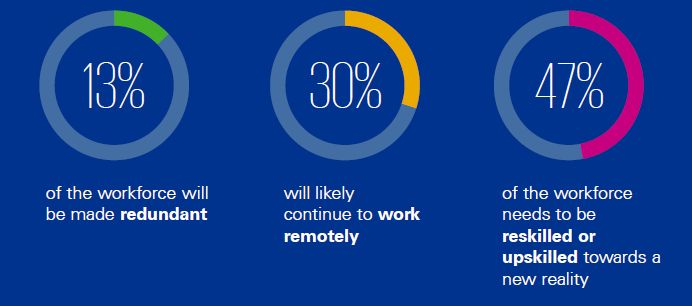KPMG: COVID-19 creating new challenges for HR amidst shifting priorities
KPMG: COVID-19 creating new challenges for HR amidst sh
PETALING JAYA, 4 February 2021 — In the past year, Human Resource (HR) leaders played vital roles in adapting their organization’s workforce to the unforeseen changes brought about by the global pandemic. Last year set the stage for a massive increase in remote work which raised the HR function’s visibility and contribution to the business significantly, and we can expect the workforce to continue changing dramatically over the next two years.
KPMG’s global 2020 HR Pulse Survey received responses from nearly 1,300 HR executives worldwide across diversified industries including financial services, retail, professional and businesses, manufacturing, transportation and logistics, and education and non-profit. The survey was conducted to provide insights into understanding how COVID-19 was affecting the HR function.
In Malaysia, 87 percent of HR Executives believed HR played a leading role in responding to COVID-19. However, in the next 12-24 months new challenges are likely to arise with a prediction that 13 percent of the workforce will be made redundant, 30 percent will continue working from home and 47 percent of the workforce will need to be reskilled or upskilled towards the ‘new reality’.
Chart: New challenges perceived by HR leaders in Malaysia over the next 12-24 months*

“HR functions have had to pivot their priorities in the past year, swiftly transitioning the workforce of their respective organizations from what we call the reaction phase, to resilience, recovery and finally, the ‘new reality’. Each phase requires new mindsets and skills, and will no doubt have a long-lasting impact on the way we continue to work and shape our workforce,” said Sharmini Ann Jacob, Executive Director of People and Change Advisory at KPMG in Malaysia.
Lessons learnt for the new reality
According to the survey, only 39 percent of HR executives in Malaysia say that their organization is adapting in the ‘new reality’. Equally surprising, 39 percent consider their organization to still be in the resilience phase and are supporting and developing leaders and employees to manage through uncertainty.
To efficiently prepare for the ‘new reality’, HR needs to look to the more strategic challenge of shaping the workforce to drive competitive advantage over the medium and long term.
Here are three things that HR can consider investing in to drive the most value and help their organizations become more resilient:
1) Create a purpose driven culture
Besides recognizing the importance of creating a cohesive employee experience, HR leaders should adjust the organization culture to better suit a remote working environment. The workplace is now no longer associated with a physical space, but instead defined by long hours of solo work and online meetings.
It is more crucial than ever for HR to engage its workforce or risk the organization’s culture dissolving into an environment of isolation, anxiety, and video call fatigue that puts productivity, on-the-job learning, and employee retention at risk.
2) Take the lead to reskill the workforce
At least 44 percent of respondents consider delivering on the agenda for transformational learning and reskilling the workforce as a top skill to add value in today’s environment. This can be a difficult process during this uncertain time however, as employees need to be re-trained to work and lead effectively in a remote environment.
Since traditional face-to-face training formats are no longer an option, HR leaders must be creative and accepting of digital learning via online platforms and adapting their own custom courses to create a virtual, asynchronous or live learning setting.
3) Harness analytics
In the current remote working environment, data will be the key factor to help improve productivity, understand talent needs, and design the future workforce. However, less than half (43%) of respondents from Malaysia admitted to being proficient in using data and analytics to target and recruit new talents.
There is an urgent need for HR leaders to pick up the technical expertise and effective data management processes to conduct meaningful analytics. They should consider making the most of their human capital data and pilot small analytics projects to monitor workforce development and link productivity to reskilling efforts.
“Until the pandemic is truly over, we must continue playing the long game by addressing fundamental dilemmas to shape the future workforce for the ‘new reality’. Challenges aside, this is an opportunity for HR to reinvent work and drive value for the enterprise,” concluded Sharmini.
To download the report and for more insights, visit www.kpmg.com.my/PnC
© 2026 KPMG PLT, a limited liability partnership established under Malaysian law and a member firm of the KPMG global organization of independent member firms affiliated with KPMG International Limited, a private English company limited by guarantee. All rights reserved.
For more detail about the structure of the KPMG global organization please visit https://kpmg.com/governance.